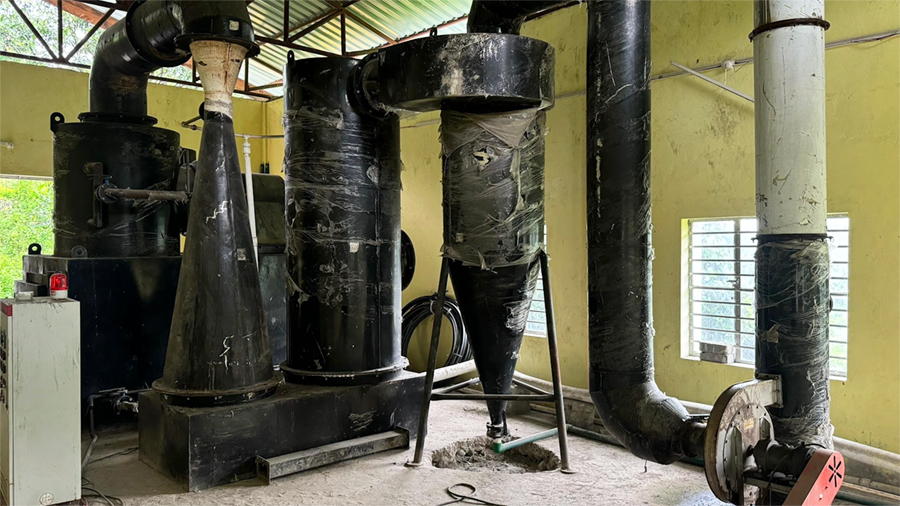
A waste incinerator installed at the Pekarzhing landfill in Phuentshogling has been idle for over a year since its installation in 2022. Phuentshogling Thromde officials say the Department of Environment and Climate Change will install the necessary spare parts soon.
The incinerator, designed to process 300 kilogrammes of waste per cycle, was briefly used during the COVID-19 pandemic, which the Phuentshogling Thromde officials say was highly beneficial.
However, it has remained out of service due to issues with some parts.
Officials are uncertain whether the problem is related to the quality of the incinerator itself.
Uttar Kumar Rai, Phuentshogling Thrompon said “It was provided as a grant, and there is a need for a clear Terms of Reference (ToR), but none exists. Simply providing it without proper guidelines is inadequate. However, it was beneficial during the COVID-19 pandemic. For sustainable use, both quality and staff training are crucial. A lack of trained operators could be a reason for issues, but this problem also affects incinerators in other thromdes, suggesting that the quality itself might be subpar.”
He added that incinerating waste is expensive, as both electricity and fossil fuels are required.
For instance, officials said that incinerating around 900 kilogrammes of waste cost about Nu 10,000.
Thromde officials said that waste incinerators will be indispensable in the future.
Therefore, they highlighted the importance of key strategies to minimise waste generation, such as reducing, reusing, recycling, and refusing.
Phuentshogling Thrompon said that “Incinerators are important because, in the long run, landfills will not be able to accommodate all waste. Currently, we only incinerate medical waste, but in the future, we may face a shortage of landfill space. Therefore, we need to focus on waste management and be mindful of what goes to waste. Incineration should be considered a last resort.”
The Department of Environment and Climate Change installed three incinerators in Thimphu, Monggar, and Phuentshogling with support from the UNDP, at a cost of over USD 370,000.
Kinley Dem, Phuentshogling
Edited by Sherub Dorji









